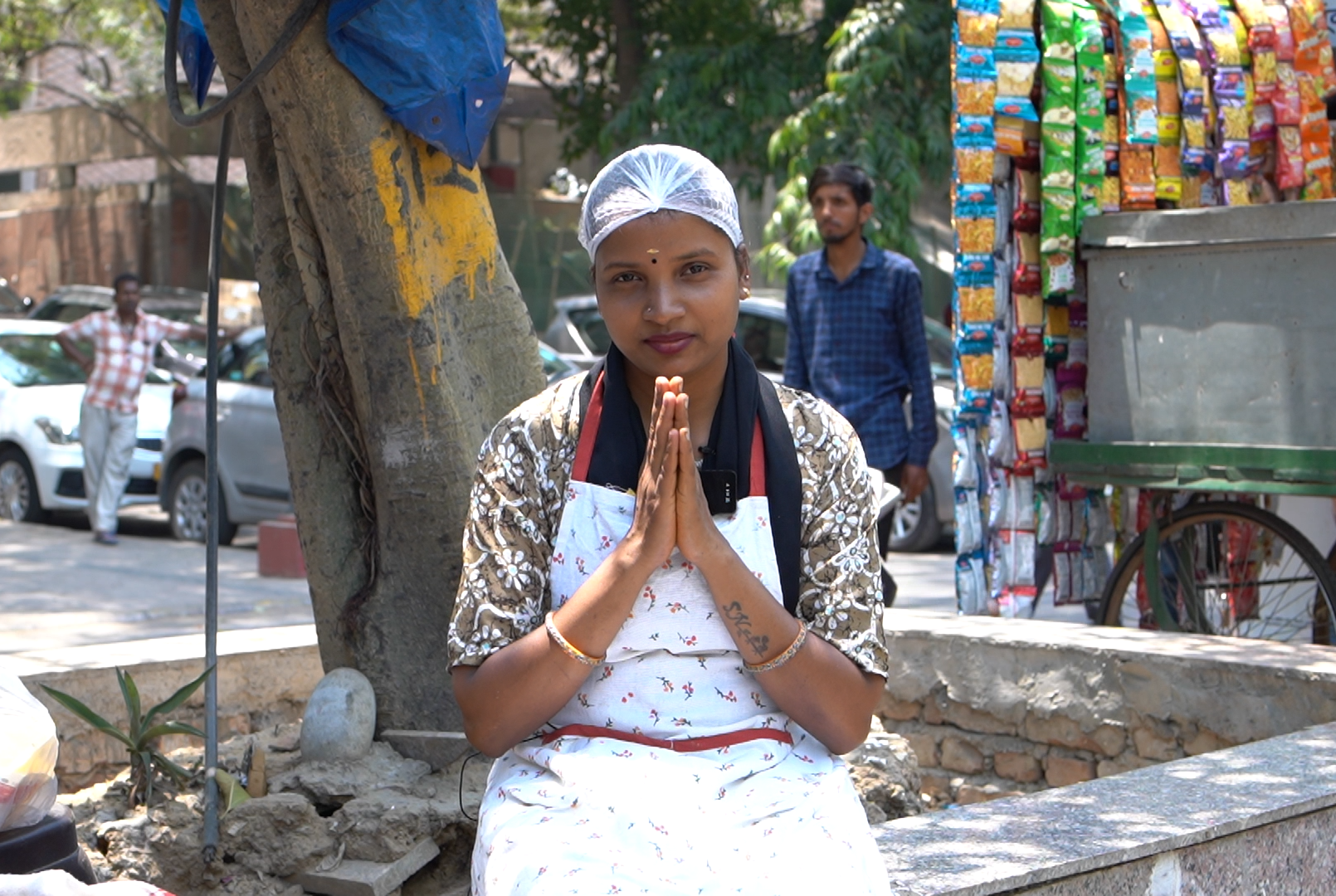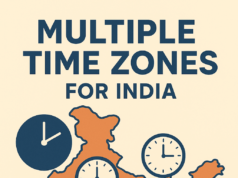A Path to Empowering Victory: The Jeevika’s Fights for Street Vendor Justice
Nitya Shankar’s journey as a street vendor symbolizes the financial independence of informal economy workers and their battle against the unnecessary obstacles created by the state. Despite difficulties, she has overcome challenges with assistance from the Jeevika initiative by the Centre for Civil Society.
Nitya Shankar, the familiar presence at Anna Dosa Point in the bustling area of Bhikaji Cama Place in New Delhi for more than seven years, is well-acquainted with the everyday challenges and joys of being a street vendor. However, her world was thrown into turmoil on 11 March 2023, when the Municipal Corporation of Delhi (MCD) issued her a substantial fine of INR 10,000 for alleged littering under the sections 357 and 397 of the DMC Act 1957. As per the DMC Act the fine for these sections should be INR 50 for every violation.
Nitya takes great pride in keeping her surroundings clean. She diligently obtained all the necessary documents, including a Certificate of Vending (CoV) and Letter of Recommendation (LoR), to ensure her legitimacy as a street vendor. However, despite her compliance, the MCD official was unmoved and insisted on the hefty fine, even going as far as threatening police action. This situation was not just about a fine; it posed a real threat to Nitya’s survival, since this food stall is the only means of livelihood for her family, putting her children’s education and monthly rent in jeopardy.
However, Nitya’s story doesn’t end in despair. It takes a powerful turn with the intervention of the Jeevika App, a mobile application launched by the Centre for Civil Society (CCS). This innovative initiative embodies the spirit of empowerment and justice for street vendors like Nitya. The app provides not just legal aid but also a sense of agency, equipping vendors with the knowledge and tools to navigate challenging situations.
A Fight for More Than Just a Challan: The Street Vendors Act, 2014
Nitya’s case goes beyond a simple challan. It raises questions about the implementation of the Street Vendors Act, 2014 (SVA). This landmark legislation was enacted to protect the rights and livelihoods of millions of street vendors across India. The SV Act mandates the establishment of Town Vending Committees (TVCs) with equal representation from vendors, government officials, and public representatives. These committees are crucial for ensuring fair treatment of vendors, resolving grievances, and designating vending zones. In Nitya’s situation, the seemingly arbitrary fine and lack of due process go against the very spirit of the SV Act, and the fundamental tenets of rule of law itself. This Act emphasizes the importance of respecting vendors’ vending rights and their dignity.
Jeevika App: An icon of Hope and Empowerment for Street vendors
Nitya filed a complaint on the Jeevika Mobile app and shared about unfair treatment by the MCD official. The Jeevika team responded swiftly, requesting her documents and assuring her of legal representation. In the Municipal Court, an advocate from the Jeevika team presented a compelling case, highlighting the financial hardship that challan of INR 10,000 would cause Nitya, and presented her CoV and LoR as undeniable proof of her right to operate the stall under the SVA. He also pointed out the potential violation of the Act’s provisions regarding fair treatment and grievance redressal. Initially, the judge seemed dismissive. But the advocate persevered, and meticulously explained the legalities, emphasizing the disproportionate nature of the fine and potential violation of SVA provisions.
Justice Prevails: A Reduced Challan and a Restored Sense of Security for Street vendors
After presenting all the necessary documents the Municipal Court Judge acknowledged the legitimacy of Nitya’s documents and the advocate’s arguments, recognizing the importance of the SVA in protecting vendors’ rights. The challan amount was reduced from INR 10,000 to INR 1,000. The Jeevika team not only provided legal aid but also addressed Nitya’s fear of police harassment and, most importantly, instilled confidence in her, to handle future interactions with authorities.
Nitya’s story is a powerful testament to how the Jeevika App empowers market vendors. In one of the interactions with her fellows, she acknowledged Jeevika App to be more than just legal aid; but as a beacon of hope, fostering a sense of empowerment and justice within the street vendor community. This case highlights the critical role of such initiatives and the SVA in ensuring a level playing field for street vendors. Jeevika App not only protects their rights but also equips them with the knowledge and confidence to navigate the complexities of the system. It’s a story of resilience, legal victory, and, ultimately, the triumph of a system that empowers its most vulnerable members. Nitya’s case is just one example of the challenges faced by street vendors.
Her journey underscores the transformative power of initiatives like the Jeevika App in empowering marginalized groups. Beyond merely offering legal aid, it serves as an emblem of aspiration, igniting a flame of empowerment and justice within the street vendor community. By leveraging technology and legal advocacy, the app not only safeguards their rights but also fosters economic freedom and empowerment for those whom we encounter daily but yet often overlook.
Watch the full video: Nitya’s Jeevika Justice story
Read another street vendor, Jai Prakash’s story [here]
Post Disclaimer
The opinions expressed in this essay are those of the authors. They do not purport to reflect the opinions or views of CCS.






